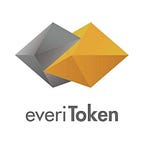Libra vs. everiToken: Focus on Innovation
In the blockchain industry, the hot topic for the coming year is not Bitcoin nor Ethereum, but Facebook and its Libra project. Large organizations such as Facebook and JPMorgan have begun exploring the massive adoption of blockchain, indicating a thrust of mainstream attention.
After the Libra project announcement, many financial companies have expressed their willingness to supply Libra’s nodes and work with Facebook to develop its blockchain ecosystem. However, in terms of the Libra project itself, there is no clear innovative movement. The project primarily focuses on controversial Stablecoin and blockchain payment systems, but the world needs more underlying innovation to solve the problems facing the industry today.
In regards to everiToken project, the token-based transaction model and safe contract were born to solve real problems plaguing the industry today and support a future blueprint for blockchain applications. Let’s compare Libra to everiToken from the inside out.
Ingenious Token-based Transaction Model
First of all, Libra still adopts the ‘account-based’ transaction model but focuses on transactions. The newly developed Move, a smart contract programming language, deals with asset management, which is totally different from Ethereum. At the same time, the account-based transaction model has a major inherent flaw: its ability to raise the TPS through sharding or cross-chain is limited.
Currently, Libra’s ecology is running in the form of an alliance chain, which is being challenged by hundreds of millions of users. It is unclear how this kind of network can bear so many users.
One of everiToken’s core innovations is the token-based transaction model. After analyzing Bitcoin’s UTXO and Ethereum’s account-based model, we proposed a new transaction model which is published and reported by IEEE Access.
We define a token as a proof that you have an exclusive share of the economy held in an asset at a specified period of time, a particular place, or a time-based service provided by a particular entity. A beneficial feature of this accounting method is that it naturally supports parallelism. During the transferring process, the name of the token is altered rather than an action between two accounts. In this way, we have been able to achieve a TPS of 10,000+ with sharding.
In addition, the token-based transaction model gives each token a unique ID, adding a preventative measure to 51% attacks. And it means that Token-based transaction model combining with a certain governance mechanism can effectively prevent double flower, especially caused by 51% attack.
Safe contract vs. Move
Along with Libra, Facebook also launched a new programming language called Move. This language is specifically designed for blockchain transactions and for developers to build apps that work with Libra. It is still in the early stages of development.
everiToken introduces the novel idea of safe contracts via our API layer. Rather than code directly, users rely on safe contracts to facilitate processes such as the issuance and transfer of tokens. By simplifying functions to the core requirements, safe contracts ensure that all chain transactions are secure and without loopholes, as the available API functions are fully reviewed and verified.
Based on actual developmental feedback, the average cycle for building applications on everiToken is reduced to around a week, while maintaining very low costs. As a platform, everiToken mainly considers the proportion of business operation and code development, allowing third parties to focus more on the business side.
More Business Applications on everiToken
At present, Libra is still in its infancy. However, its participants are those of traditional financial institutions, which greatly limits the scope of its application.
In everiToken, we see a different picture. There is much more than stablecoin projects on everiToken. HWG Cash issued 500 million USD in stablecoin, which is strictly legal and pegged to USD bank rates. There are also application projects such as the partnership with Zhiyuanhui, where the everiToken infrastructure supports the rewarding of coins for volunteer time.
Another application is for smart door locks, which reduce the risk of attacks on centralized servers through decentralization. At the same time, token-based tokens are very friendly to third-party supervision.
everiToken has been widely implemented in many fields such as cross-border payment, credibility points, and public welfare.
More Brilliant Blueprint
everiToken focuses more on non-fungible tokens, while Libra concentrates more on fungible, heralding a totally different ecology and application direction.
Fungible tokens can be seen as a coin equal to money. everiToken can easily achieve this with our superfast payment protocol everyPay. On the other hand, everiToken can allow us to simulate company structure liking Banks, which can set related position and office according to real-life rules. So, it boasts unlimited expansion much better than Libra.
Before understanding non-fungible tokens, let’s consider a large number of stones on a beach. In the real world, every stone on a beach has a different weight, appearance, and rock type. There are no two exactly identical stones. Also, stones cannot be easily combined together. Therefore, we say that every stone is ‘indivisible’ and ‘not to be combined’.
In the design of everiToken, we put non-fungible tokens first because these tokens not only represent money but also rights. This means literally anything can be tokenized: art, clothes, real-estate, games, and much more. Through this, we can connect blockchain to all human beings, benefiting everyone with transparency, security, and ease of use.
